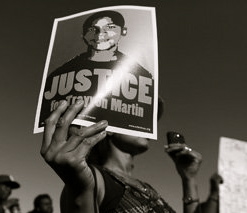
Questions of Inclusion: What the Trayvon Martin Case Reveals about Race in America
A Conversation with Rakim Brooks Background: On February 26, 2012, 17 year-old Trayvon Martin was shot and killed as he was walking home to his father’s house in a community in Sanford, Florida. Unarmed, Martin was seen carrying an iced tea and a bag of Skittles candy, when 28 year-old George Zimmerman opened fire on the boy, resulting in his death. Until yesterday, under the auspices of self defence and through the protection of Florida’s “Stand Your Ground” law, Zimmerman had not been arrested for a crime that the civil rights community insists was motivated by racial prejudice. Public outrage regarding the handling of the incident (no doubt including the decision not to arrest Zimmerman) resulted in the resignation of …
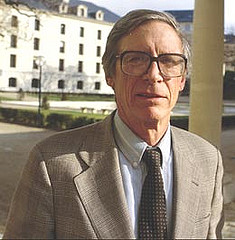
Rawls on Wall Street: comparing his theory of justice to economic liberal theory
In terms of the financial crisis, there are fascinating links between the Rawlsian theory of justice and the economic liberal theory which has drawn criticsm for failing to predict the crash. For Rawlsian adepts: this is not an attempt to apply Rawls’ theory of justice to explain the current economic crisis. It would not be suited to do so and neither was it designed to do so. But highlighting these links may teach us a thing or two about both endeavours and also give us pause about the Rawlsian project itself. Much (too much?) has been written about Rawls, both in defense of his project and against it. Those in disagreement generally use one of two strategies: attack the …
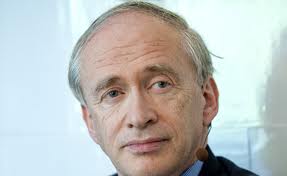
What is Political Thinking?: A Q&A with Professor Michael Freeden
Recently retired from Mansfield College, Oxford, Professor Michael Freeden, a political theorist is best known for his work on political ideologies, a subject often maligned as an inferior cousin of political philosophy and political theory. Marx did no favours for the term, of course, and End of Ideology thinkers like Daniel Bell and Seymour Martin Lipset defined ideologies so narrowly and pejoratively that few are inclined to attach their thinking to the moniker – or believe it is worth studying. But scholars interested in the interaction between ideologies and language, like Freeden, and also post-Marxist scholars like Ernesto Laclau and Chantal Mouffe, have resurrected the study – and the word. In his landmark book, Ideologies and Political Theory, Freeden argues that …
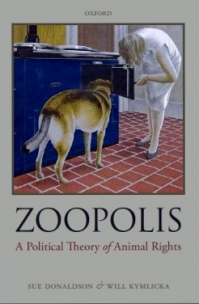
Votes for Animals!: a new book moves animal welfare from ethics to politics
Sue Donaldson and Will Kymlicka, the husband and wife authors of the new book Zoopolis: the political theory of animal rights, believe that not only should animals have basic rights but that they (or at least some of them) should be accepted as full citizens in our political communities. In doing so they move the ‘animal rights’ debate from ethics to politics. This is an intriguing topic with little application. It is a radical thesis which will appeal to almost no one. Indeed, some of its implications border on the ridiculous. Yet it is surprisingly hard to refute and will take the debate about the limits of liberal citizenship into radical new areas. The authors start from recent developments in citizenship …
Solve Syria, Don’t Provoke Iran
From Project Syndicate in Collaboration with Martin Van Creveld: Israel is daily ratcheting up its threats to attack Iran over its nuclear program. Unfortunately, these threats have come to overshadow more pressing events in Syria, which is the epicenter of a regional crisis that will determine the future of the Arab Spring, as well as Iran’s role in the Middle East. Throughout 2011, the Arab uprisings were driven by each country’s internal dynamics. Yet the disparate movements were united by the pursuit of freedom, dignity, and economic opportunity. Now this liberal narrative is breaking down. Chaos reigns in Egypt and Libya, where post-revolution authorities are proving too brittle either to consolidate their authority, or to incorporate more popular forces. In …
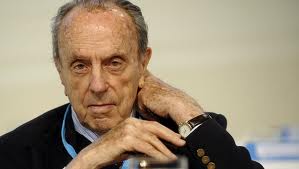
Remembering Manuel Fraga – politician and guardian of Spanish conservatism
Manuel Fraga Iribarne, who died on the 15th January (at 89), was a lion of modern Spanish conservatism. Born in 1922 in a small Galician town, he was the son of Spanish immigrants who had spent a year working in Cuba. His mother was a French-Basque teacher. In his early academic career he excelled in degrees in law, politics and economics and passed several of the most competitive exams for recruitment in Franco’s Public Administration before becoming a professor of state theory, a lawyer to the Congress and a diplomat. Highly cultivated, prolific and hardworking, he wrote approximately 80 books on history, politics and law. His encyclopaedic essay ‘La crisis del Estado’ (The State’s Crisis), influenced by Carl Schmitt, is arguably …
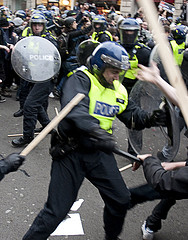
Looking back at the London Riots — moving from macro to micro analysis
The findings that have recently started to emerge from enquiries into the riots that tore through cities across England in early August 2011 paint a picture of systematic disadvantage, ingrained tensions, and radical disjunction between societal groups. Though it has proved impossible to pin down any single unifying cause for this undercurrent of societal disquiet, there is a strong implication that in the absence of concrete policy proposals to mitigate the riots’ causes and effects similar events are likely to take place again — possibly even in the near future. Though at the moment it is too early to provide much more than a diagnosis of ‘what went wrong’, I believe that the prevailing narratives about the riots have ignored …
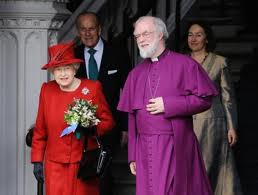
God and politics in the news: even the Queen is speaking out, but the state should tread carefully
This week a British Cabinet minister gave a speech in the Vatican decrying the spectre of militant secularism stalking the nations of Europe and bemoaning the corresponding marginalisation of the faithful. The Queen has also weighed in, speaking at Lambeth Place this week about the benefits of the Church. “We should remind ourselves of the significant position of the Church of England in our nation’s life,” she said. “The concept of our established Church is occasionally misunderstood and, I believe, commonly under-appreciated.” But despite their worry-inspired justifications, these comments, I believe, fall within a broad trend of the reintroduction of faith into the public sphere by British politicians and vociferous cries of persecution from the leaders of faith based organisations. Much of this is …









